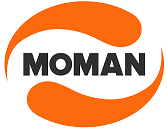The Major Oil Marketers Association (MOMAN) has disclosed that the landing cost of petrol has risen to N278 while the price of crude oil in the international market has reached $80. With this development, experts are now anticipating that subsidy payment would increase.
As of 12:09pm Nigerian time on Tuesday, the international crude oil benchmark traded at $80.02 per barrel according to Oilprice.com. Brent crude had fallen to $78.89 per barrel as of 7:14pm on Tuesday, while the United State West Texas Intermediate traded 0.45 per cent lower at $75.11 per barrel.
In a telephone conversation, the Executive Secretary and Chief Executive Officer of MOMAN said, “The last time we checked in September, the spot price if we assume an exchange rate of N410 per $, you have a landing cost price of N278 per litre.
READ ALSO: Lagos residents condemn high interest rate on telecoms data loan
“The truth is for as long as we continue to subsidise the price of fuel, we are borrowing money to consume. This means we are selling short the future generations. We need to adopt mass transportation to cut the per capita consumption of fuel and also reduce our dependence on importation to reduce the stress on the naira.”
Nigeria fell short of its August quota set by the Organisation of Petroleum Exporting Countries and its allies. This has raised concerns about double stress on the country’s finances from the angle of increased subsidy payments without a corresponding increase in crude oil earnings.
The Group Managing Director, Geoplex Drillteq Limited, Mr Wole Ogunsanya, attributed the country’s failure to meet its quota to lack of investments and poor management of assets.
He said, “The OPEC quota issue is very simple; we are not doing enough work. Oil on the ground is like a swimming pool; if you take water from it every day without replenishing it, it will keep reducing till it empties.
“We are not meeting OPEC+ quota because we are either not producing, or when the price crashes, we stopped drilling new wells, repairing old ones.
“Unless we sustain investment in the upstream oil and gas sub-sector, the amount that we produce will not be sufficient. Subsidy payment now is going to increase because as the price is fixed at N165 per litre, rising crude prices would mean we pay more per litre of fuel imported into the country.”
Ogunsanya state that until Nigeria produces and refines locally, fixes its refineries and build more, subsidy payments would continue and it would be subject to the price of crude oil in the international market.

